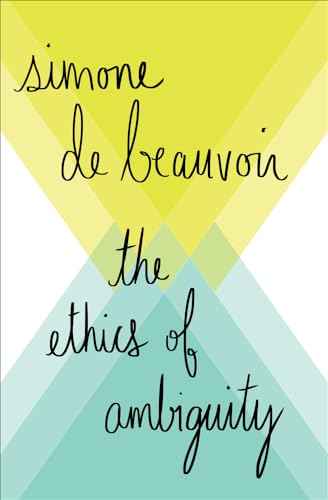

Simone de Beauvoir, a prominent figure in the world of philosophy and feminism, has left an unparalleled impact on these fields through her influential work as a writer.
Her groundbreaking contributions have significantly shaped the discourse surrounding gender, existentialism, and the pursuit of equality.
Today we get to explore the influence that Simone has had on philosophy and feminism.
By examining the legacy of her work and the relevance of her ideas in society we’ll be able to cultivate a stronger and more well-rounded lens of the world.
Philosophical Contributions
Simone de Beauvoir’s philosophical contributions are deeply rooted in existentialism, a philosophical movement that emphasizes individual freedom and choice.
Her seminal work, “The Second Sex,” challenged the prevailing notions of gender and sexuality, offering a critical analysis of the social and cultural constructs that perpetuate the subjugation of women.
Simone’s philosophical exploration of the “otherness” of women and the concept of “becoming” has had a profound impact on feminist theory and continues to be a foundational text in the study of gender and identity.
Her book outlines a myriad of disparities that women faced then and still struggle against to this day in modern society. By reading through The Second Sex, readers get a sense of the struggles that plague women at a fundamental level in society.
Beauvoir’s existentialist philosophy delves into the complexities of personal freedom and responsibility, urging people to confront the existential dilemmas of their existence.
Her emphasis on agency and self-determination has struck chords deeply within the realms of philosophy.
She has helped subsequent generations of thinkers by inspiring critical reflections on the nature of freedom and the construction of one’s identity on an interpersonal and societal level.
Regarding Ethics of Ambiguity.
Simone de Beauvoir’s philosophical contributions also extend beyond her feminist writings she is most relegated to.
She deeply explores existentialism and its profound implications for individual freedom and the construction of identity in her work “The Ethics of Ambiguity”.
In It, Beauvoir explores the existentialist notion of freedom, emphasizing the responsibility that comes with it and highlights some issues with frameworks to be extracted from Jean Paul Sartre’s “Being and Nothingness” on existentialism.
See from the first few paragraphs on the section of Freedom and Liberation some of the addressing concerns
“One of the chief objections leveled against existentialism is that the precept “to will freedom” is only a hollow formula and offers no concrete content for action. But that is because one has begun by emptying the word freedom of its concrete meaning; we have already seen that freedom realizes itself only by engaging itself in the world: to such an extent that man’s project toward freedom is embodied for him in definite acts of behavior.
To will freedom and to will to disclose being are one and the same choice; hence, freedom takes a positive and constructive step which causes being to pass to existence in a movement which is constantly surpassed.
Science, technics, art, and philosophy are indefinite conquests of existence over being; it is by assuming themselves as such that they take on their genuine aspect; it is in the light of this assumption that the word progress finds its veridical meaning. It is not a matter of approaching a fixed limit: absolute Knowledge or the happiness of man or the perfection of beauty; all human effort would then be doomed to failure, for with each step forward the horizon recedes a step; for man it is a matter of pursuing the expansion of his existence and of retrieving this very effort as an absolute.“
All throughout her works and lectures, she posits that true freedom requires individuals to recognize their own agency and to actively shape their lives.
This is in objection to the notion of passively accepting societal norms or external impositions.
This concept of freedom is intrinsically linked to the idea of authenticity, wherein individuals must confront the complexities of their existence and make deliberate choices that align with their values and aspirations.
Beauvoir’s thorough exploration of identity challenges the traditional conceptions of the self, suggesting that identity is not a fixed or predetermined entity, but rather a dynamic process of “becoming.”
She argues that individuals are constantly engaged in the construction of their identity, negotiating the tensions between their subjective experiences and the societal expectations placed upon them.
This philosophical perspective has had a strong influence on the understanding of human agency and the potential for personal transformation.
Her writings have inspired subsequent thinkers to delve deeper into the complexities of identity formation and the emancipatory potential of existentialist thought
Simone De Beauvoir’s Feminist Legacy

Let me say definitively that Beauvoir’s legacy as a feminist icon is undeniable.
She played a pivotal role in advancing the feminist movement through her writing and activism. Her unapologetic critique of patriarchy and her advocacy for women’s rights have galvanized feminist thought, and sparked countless conversations about gender equality and the dismantling of oppressive power structures.
Her focal point and more commonly reference concept of “women’s lived experiences” has been instrumental in highlighting the diverse and intersecting challenges faced by women, shedding light on the importance of acknowledging the multiplicity of women’s narratives within the broader feminist discourse.
Her emphasis on the social and historical construction of gender roles has paved the way for intersectional feminism, prompting a more inclusive and comprehensive approach to addressing the complexities of gender oppression.
Simone’s unwavering commitment to challenging societal norms and advocating for women’s autonomy has reverberated across generations, inspiring countless individuals to confront and resist the pervasive forces of gender-based discrimination.
Her contributions to feminist philosophy continue to serve as a catalyst for transformative social change, igniting movements that strive for gender equity and justice.
While de Beauvoir’s primary focus was on the experience of women, her insights have been expanded and applied to the experiences of individuals and communities facing multiple, overlapping forms of marginalization.
The concept of intersectionality, championed by scholars such as Kimberlé Crenshaw, acknowledges that the lived experiences of individuals are shaped by the intersection of different social identities, such as race, class, sexuality, disability, and gender.
Beauvoir’s analysis of the “otherness” experienced by women has been instrumental in understanding how various systems of oppression, including racism, classism, and heteronormativity, intersect and compound the marginalization of certain individuals and communities.
By recognizing the intersections of oppression, feminist thinkers have been able to develop a more nuanced and inclusive understanding of the challenges faced by diverse groups of people. This has led to a shift in the feminist movement, moving beyond a singular focus on gender and towards a more holistic approach that addresses the complexities of identity and the multifaceted nature of social injustice.
Beauvoir’s influence on the development of intersectional feminist thought has been profound, as her work has inspired subsequent generations of scholars and activists to challenge the limitations of traditional feminist frameworks and to advocate for a more comprehensive and inclusive approach to social justice.
Simone De Beauvoir’s Relevance in 2025

There is no lack of evidence in the ongoing struggles for gender equality and the recognition of diverse gender identities. Simone De Beauvoir’s critical insights into the construction of gender and the pervasive influence of patriarchy remain salient in the current discourse surrounding feminism and social justice.
Her emphasis on the agency and autonomy of individuals resonates with contemporary efforts to amplify marginalized voices and dismantle oppressive structures. Her philosophical inquiries into the nature of freedom and the complexities of existence continue to inform discussions on personal empowerment and the pursuit of equality in all spheres of life.
Simone de Beauvoir serves as a guiding beacon for those who continue to advocate for a more just and equitable world, inspiring ongoing reflections on the intersections of gender, power, and identity.
One of the areas where Beauvoir’s work continues to be exceptionally relevant is in the ongoing struggle against gender-based violence and the objectification of women. Though there have been leaps and strides.. it is still far from perfect in terms of an equitable distribution of judgement and fairness for women in today’s age.
Her emphasis on the importance of individual agency and the responsibility that comes with freedom has resonated with younger generations who are grappling with the complexities of identity, social change, and personal empowerment. Her existentialist philosophy has inspired many individuals to question the status quo, to confront their own biases and limitations, and to actively participate in the shaping of their lives and communities.
Despite the significant progress that has been made in advancing gender equality and promoting the recognition of diverse identities, the challenges that de Beauvoir’s work sought to address continue to persist in various forms.
As the complex realm of gender, sex, and identity Simone de Beauvoir’s legacy serves as a powerful reminder of the importance of critical thinking, intersectional analysis, and the unwavering commitment to social justice. Her work continues to inspire and guide individuals, activists, and scholars in their quest to create a more equitable and inclusive world, where the fundamental rights and dignity of all people are recognized and upheld.
It is a wonderful thing to see that literature that has been written and over the course of that persons lifetime, substantial change has been made.
Perhaps Simone’s work may influence one of you to write at length and create something remarkable.


